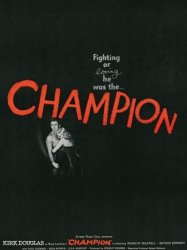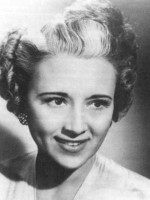Paul Stewart is a Actor American born on 13 march 1908 at New York City (USA)

Paul Stewart (born Paul Sternberg; March 13, 1908 – February 17, 1986) was an American character actor, director and producer who worked in theatre, radio, films and television. He frequently portrayed cynical and sinister characters throughout his lengthy career. A friend and associate of Orson Welles for many years, he helped Welles get his first job in radio and was associate producer of the celebrated radio program "The War of the Worlds", in which he also performed. One of the Mercury Theatre players who made their film debut in Welles's landmark film Citizen Kane, Stewart portrayed Kane's butler and valet, Raymond. He appeared in 50 films, and performed in or directed some 5,000 radio and television shows.
Stewart began his stage career in New York as teenager. He made his Broadway debut in 1930, in Subway Express. He next appeared in the 1931 play, Two Seconds, adapted as a film the next year.
In 1932, after two additional Broadway credits, Stewart moved to Cincinnati and went to work at radio station WLW. It was there in 1928 that radio pioneer Fred Smith had created the program Newscasting, which in 1931 evolved into the popular national news series, The March of Time. For 13 months Stewart worked in all aspects of radio production at WLW — acting, announcing, directing, producing, writing and creating sound effects. When he returned to New York he was on The March of Time and a member of radio's elite corps of actors.
In 1934 Stewart introduced Orson Welles to director Knowles Entrikin, who gave Welles his first job on radio, on The American School of the Air. "I'd been turning up for auditions and never landing a job until I met Paul Stewart," Welles recalled. "He's a lovely man; for years he was one of the main pillars of our Mercury broadcasts. He can't be given too much credit."
In March 1935 Stewart saw Welles's stage performance in Archibald MacLeish's verse play Panic, and recommended him to director Homer Fickett. Welles was auditioned and hired to join the repertory company that presented The March of Time.
"It was like a stock company, whose members were the aristocrats of this relatively new profession of radio acting," wrote fellow actor Joseph Julian. At that time Julian had to content himself with being an indistinguishable voice in crowd scenes, envying this "hallowed circle" that included Stewart, Welles, Kenny Delmar, Arlene Francis, Gary Merrill, Agnes Moorehead, Jeanette Nolan, Everett Sloane, Richard Widmark, Art Carney, Ray Collins, Pedro de Cordoba, Ted de Corsia, Juano Hernandez, Nancy Kelly, John McIntire, Jack Smart and Dwight Weist. The March of Time was one of radio's most popular shows.
Stewart was a founder of the American Federation of Radio Artists in August 1937, and one of its inaugural officers. He carried card number 39 in the union and was a frequent delegate at the national convention. He was also a board member of the Screen Actors Guild, and a member of the Directors Guild of America and the Academy of Motion Picture Arts and Sciences.
Stewart played various roles throughout Welles's memorable tenure as Lamont Cranston in The Shadow (September 1937–September 1938).
In 1938 Welles expanded the range of the Mercury Theatre from Broadway to network radio with his CBS series, The Mercury Theatre on the Air, and Stewart became his associate producer. In addition to playing a number of roles in the drama series and its sponsored continuation, The Campbell Playhouse, Stewart made significant contributions to the celebrated broadcast, "The War of the Worlds", as rehearsal director, actor and co-writer. Welles later said that Stewart deserved the largest share of the credit for the quality of "The War of the Worlds".
In 1939 Stewart was married to actress and singer Peg LaCentra (1910–1996), a vocalist with Artie Shaw's first orchestra who worked in radio, films and television. That September Welles called Stewart in New York.
"The telephone rang and I heard the unmistakable voice of Orson Welles, speaking from California," Stewart recalled:
Well, when Orson said he had a part for you, you went. So I left New York to play my first role in a picture at 500 dollars a week, three weeks' guarantee. I was on Citizen Kane for 11 weeks. … My first shot was a close-up in which Orson wanted a special smoke effect from my cigarette. I was rigged with tube that went under my clothes and down my finger to the cigarette, but somehow the contraption wouldn't exude smoke. "I want long cigarettes — the Russian kind!" Orson ordered. Everyone waited while the prop man fetched some Russian cigarettes. Just before the scene Orson Welles warned me: "Your head is going to fill the screen at the Radio City Music Hall" — at that time Citizen Kane was booked for the Music Hall. Then he said in his gruff manner, "Turn 'em." But just before I started, he added quietly in his warm voice, "Good luck." I blew the first take. It was 30, 40 takes before I completed a shot that Orson liked — and I had only one line. That was almost 30 years ago, but even today I have people repeat it to me, including young students. The line was: "Rosebud … I'll tell you about Rosebud …"
Stewart's most famous role is his screen debut as Raymond, the cynical butler in Citizen Kane (1941). Actress Ruth Warrick, who portrayed Kane's first wife, remembered Stewart saying to her at the film's New York premiere, "From this night on, wherever we go or whatever we do in our lives, we will always be identified with Citizen Kane."
On the stage, Stewart appeared in the Mercury Theatre's acclaimed production of Native Son, directed by Welles and produced by John Houseman at the St. James Theatre March 24–June 28, 1941.
During World War II Stewart served with the New York-based Office of War Information (1941–43) and narrated documentaries including The World at War (1942). He worked under John Houseman at the newly created Voice of America (1942–43), broadcasting news, editorials and commentary from the U.S. press, and quotes from notable speeches, to audiences in Europe. When Houseman took his oath of allegiance as a U.S. citizen in March 1943, he chose Stewart to accompany him as his witness.
Stewart was given leave to go to Hollywood to act in a few wartime films, including Mr. Lucky (1943), and worked as a barker in The Mercury Wonder Show, a magic-and-variety show produced by Welles and Joseph Cotten as a morale-boosting entertainment for U.S. soldiers. Because of his comprehensive radio experience, Stewart was called upon by U.S. Treasury Secretary Henry Morgenthau, Jr. to prepare radio programs used to promote the purchase of War Bonds during World War II. He produced and directed Welles's Fifth War Loan broadcast from the Hollywood Bowl June 14, 1944, and produced, directed and acted in a number of patriotic episodes of the Cavalcade of America radio series.
After the war Stewart went to work for David O. Selznick and Dore Schary as a writer, director and producer, and directed screen tests for Paramount Pictures. Stewart's many feature film credits as an actor include The Window, Champion, Twelve O'Clock High, Deadline - U.S.A., The Bad and the Beautiful, The Juggler, Kiss Me Deadly, King Creole, In Cold Blood, The Day of the Locust and W.C. Fields and Me, in which he portrayed Florenz Ziegfeld.
In 1950 Stewart took over the role of Doc in Joshua Logan's Broadway production of Mister Roberts, starring Henry Fonda.
On television, Stewart's director credits include the syndicated series, Top Secret (1954–55), in which he costarred with the young Gena Rowlands, and a notable episode of the TV series The Twilight Zone, "Little Girl Lost" (1962). He was host and narrator of the syndicated series Deadline (1959–61) and appeared in episodes of The Ford Theatre Hour, Suspense, Playhouse 90, Alcoa Theatre, Alfred Hitchcock Presents, The Asphalt Jungle, Perry Mason, Dr. Kildare, Mannix, Mission Impossible, The Name of the Game ("L.A. 2017"), McMillan & Wife, Columbo, The Rockford Files, Lou Grant and Remington Steele, among many other TV series.
Orson Welles called upon Stewart to play a role in his film, The Other Side of the Wind, shot in the 1970s and left unfinished. When Welles died at his home in Hollywood October 10, 1985, Stewart was the first of his friends to arrive.
Stewart died of heart failure at Cedars-Sinai Medical Center in Los Angeles on February 17, 1986, after a long illness. He had suffered a heart attack in 1974 during the first two weeks' filming of Richard Brooks's Western, Bite the Bullet, in which he was replaced.
In the 1999 film RKO 281, Paul Stewart was portrayed by Adrian Schiller.
Source : Wikidata
Paul Stewart

- Infos
- Photos
- Best films
- Family
- Characters
- Awards
Birth name Paul Sternberg
Nationality USA
Birth 13 march 1908 at New York City (USA)
Death 17 february 1986 (at 77 years) at Los Angeles (USA)
Nationality USA
Birth 13 march 1908 at New York City (USA)
Death 17 february 1986 (at 77 years) at Los Angeles (USA)
Paul Stewart (born Paul Sternberg; March 13, 1908 – February 17, 1986) was an American character actor, director and producer who worked in theatre, radio, films and television. He frequently portrayed cynical and sinister characters throughout his lengthy career. A friend and associate of Orson Welles for many years, he helped Welles get his first job in radio and was associate producer of the celebrated radio program "The War of the Worlds", in which he also performed. One of the Mercury Theatre players who made their film debut in Welles's landmark film Citizen Kane, Stewart portrayed Kane's butler and valet, Raymond. He appeared in 50 films, and performed in or directed some 5,000 radio and television shows.
Biography
Paul Stewart was born in Manhattan March 13, 1908, as Paul Sternberg. His parents were Maurice D. Sternberg, a salesman and credit agent for a textile manufacturer, and Nathalie C. (Nathanson) Sternberg; both were born in Minneapolis. Stewart attended public school and completed two years at Columbia University, studying law. He had received first place in the Belasco Theatre Tournament in 1925 and decided on an acting career.Stewart began his stage career in New York as teenager. He made his Broadway debut in 1930, in Subway Express. He next appeared in the 1931 play, Two Seconds, adapted as a film the next year.
In 1932, after two additional Broadway credits, Stewart moved to Cincinnati and went to work at radio station WLW. It was there in 1928 that radio pioneer Fred Smith had created the program Newscasting, which in 1931 evolved into the popular national news series, The March of Time. For 13 months Stewart worked in all aspects of radio production at WLW — acting, announcing, directing, producing, writing and creating sound effects. When he returned to New York he was on The March of Time and a member of radio's elite corps of actors.
In 1934 Stewart introduced Orson Welles to director Knowles Entrikin, who gave Welles his first job on radio, on The American School of the Air. "I'd been turning up for auditions and never landing a job until I met Paul Stewart," Welles recalled. "He's a lovely man; for years he was one of the main pillars of our Mercury broadcasts. He can't be given too much credit."
In March 1935 Stewart saw Welles's stage performance in Archibald MacLeish's verse play Panic, and recommended him to director Homer Fickett. Welles was auditioned and hired to join the repertory company that presented The March of Time.
"It was like a stock company, whose members were the aristocrats of this relatively new profession of radio acting," wrote fellow actor Joseph Julian. At that time Julian had to content himself with being an indistinguishable voice in crowd scenes, envying this "hallowed circle" that included Stewart, Welles, Kenny Delmar, Arlene Francis, Gary Merrill, Agnes Moorehead, Jeanette Nolan, Everett Sloane, Richard Widmark, Art Carney, Ray Collins, Pedro de Cordoba, Ted de Corsia, Juano Hernandez, Nancy Kelly, John McIntire, Jack Smart and Dwight Weist. The March of Time was one of radio's most popular shows.
Stewart was a founder of the American Federation of Radio Artists in August 1937, and one of its inaugural officers. He carried card number 39 in the union and was a frequent delegate at the national convention. He was also a board member of the Screen Actors Guild, and a member of the Directors Guild of America and the Academy of Motion Picture Arts and Sciences.
Stewart played various roles throughout Welles's memorable tenure as Lamont Cranston in The Shadow (September 1937–September 1938).
In 1938 Welles expanded the range of the Mercury Theatre from Broadway to network radio with his CBS series, The Mercury Theatre on the Air, and Stewart became his associate producer. In addition to playing a number of roles in the drama series and its sponsored continuation, The Campbell Playhouse, Stewart made significant contributions to the celebrated broadcast, "The War of the Worlds", as rehearsal director, actor and co-writer. Welles later said that Stewart deserved the largest share of the credit for the quality of "The War of the Worlds".
In 1939 Stewart was married to actress and singer Peg LaCentra (1910–1996), a vocalist with Artie Shaw's first orchestra who worked in radio, films and television. That September Welles called Stewart in New York.
"The telephone rang and I heard the unmistakable voice of Orson Welles, speaking from California," Stewart recalled:
Well, when Orson said he had a part for you, you went. So I left New York to play my first role in a picture at 500 dollars a week, three weeks' guarantee. I was on Citizen Kane for 11 weeks. … My first shot was a close-up in which Orson wanted a special smoke effect from my cigarette. I was rigged with tube that went under my clothes and down my finger to the cigarette, but somehow the contraption wouldn't exude smoke. "I want long cigarettes — the Russian kind!" Orson ordered. Everyone waited while the prop man fetched some Russian cigarettes. Just before the scene Orson Welles warned me: "Your head is going to fill the screen at the Radio City Music Hall" — at that time Citizen Kane was booked for the Music Hall. Then he said in his gruff manner, "Turn 'em." But just before I started, he added quietly in his warm voice, "Good luck." I blew the first take. It was 30, 40 takes before I completed a shot that Orson liked — and I had only one line. That was almost 30 years ago, but even today I have people repeat it to me, including young students. The line was: "Rosebud … I'll tell you about Rosebud …"
Stewart's most famous role is his screen debut as Raymond, the cynical butler in Citizen Kane (1941). Actress Ruth Warrick, who portrayed Kane's first wife, remembered Stewart saying to her at the film's New York premiere, "From this night on, wherever we go or whatever we do in our lives, we will always be identified with Citizen Kane."
On the stage, Stewart appeared in the Mercury Theatre's acclaimed production of Native Son, directed by Welles and produced by John Houseman at the St. James Theatre March 24–June 28, 1941.
During World War II Stewart served with the New York-based Office of War Information (1941–43) and narrated documentaries including The World at War (1942). He worked under John Houseman at the newly created Voice of America (1942–43), broadcasting news, editorials and commentary from the U.S. press, and quotes from notable speeches, to audiences in Europe. When Houseman took his oath of allegiance as a U.S. citizen in March 1943, he chose Stewart to accompany him as his witness.
Stewart was given leave to go to Hollywood to act in a few wartime films, including Mr. Lucky (1943), and worked as a barker in The Mercury Wonder Show, a magic-and-variety show produced by Welles and Joseph Cotten as a morale-boosting entertainment for U.S. soldiers. Because of his comprehensive radio experience, Stewart was called upon by U.S. Treasury Secretary Henry Morgenthau, Jr. to prepare radio programs used to promote the purchase of War Bonds during World War II. He produced and directed Welles's Fifth War Loan broadcast from the Hollywood Bowl June 14, 1944, and produced, directed and acted in a number of patriotic episodes of the Cavalcade of America radio series.
After the war Stewart went to work for David O. Selznick and Dore Schary as a writer, director and producer, and directed screen tests for Paramount Pictures. Stewart's many feature film credits as an actor include The Window, Champion, Twelve O'Clock High, Deadline - U.S.A., The Bad and the Beautiful, The Juggler, Kiss Me Deadly, King Creole, In Cold Blood, The Day of the Locust and W.C. Fields and Me, in which he portrayed Florenz Ziegfeld.
In 1950 Stewart took over the role of Doc in Joshua Logan's Broadway production of Mister Roberts, starring Henry Fonda.
On television, Stewart's director credits include the syndicated series, Top Secret (1954–55), in which he costarred with the young Gena Rowlands, and a notable episode of the TV series The Twilight Zone, "Little Girl Lost" (1962). He was host and narrator of the syndicated series Deadline (1959–61) and appeared in episodes of The Ford Theatre Hour, Suspense, Playhouse 90, Alcoa Theatre, Alfred Hitchcock Presents, The Asphalt Jungle, Perry Mason, Dr. Kildare, Mannix, Mission Impossible, The Name of the Game ("L.A. 2017"), McMillan & Wife, Columbo, The Rockford Files, Lou Grant and Remington Steele, among many other TV series.
Orson Welles called upon Stewart to play a role in his film, The Other Side of the Wind, shot in the 1970s and left unfinished. When Welles died at his home in Hollywood October 10, 1985, Stewart was the first of his friends to arrive.
Stewart died of heart failure at Cedars-Sinai Medical Center in Los Angeles on February 17, 1986, after a long illness. He had suffered a heart attack in 1974 during the first two weeks' filming of Richard Brooks's Western, Bite the Bullet, in which he was replaced.
In the 1999 film RKO 281, Paul Stewart was portrayed by Adrian Schiller.
Best films
Usually with
Filmography of Paul Stewart (56 films)
Actor
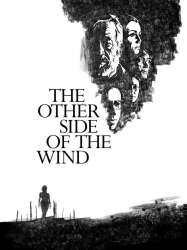
The Other Side of the Wind (2018)
, 2h2Directed by Orson Welles
Origin USA
Genres Drama, Comedy
Actors John Huston, Peter Bogdanovich, Norman Foster, Lilli Palmer, Robert Random, Joseph McBride
Roles Matt Costello
Rating66%





Un vieux réalisateur, J.J. Hannaford, mélange de John Ford et d'Ernest Hemingway fait son retour à Hollywood après plusieurs années d'exil en Europe. Il est en train de finir un nouveau film avec lequel il veut mettre au défi, sur le terrain, « toute la palette du jeune cinéma américain, depuis les cinéphiles mélancoliques jusqu'à Andy Warhol ». Une fête est organisée en son honneur dans son ranch par tout le gratin hollywoodien à l'occasion de son soixante-dixième anniversaire. Cette soirée se terminera par la mort du réalisateur au volant de la voiture de sport qu'il voulait offrir à son acteur favori, sans que l'on sache s'il s'agit d'un accident ou d'un suicide.
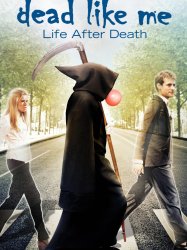 , 1h27
, 1h27Directed by Stephen Herek
Origin USA
Genres Drama, Comedy, Fantasy
Actors Ellen Muth, Callum Blue, Sarah Winter, Jasmine Guy, Britt McKillip, Cynthia Stevenson
Roles Doctor
Rating61%





A crew of Reapers, whose job is to extract souls of people who are about to die, find themselves confronted by change as their habitual meeting place (Der Waffle Haus) burns down on the same day that their boss and head reaper (Rube) disappears (having "gotten his lights"). They soon meet their new boss, Cameron Kane (Henry Ian Cusick), a slick businessman who died falling from the World Trade Center on September 11, 2001. He outfits them with color-coordinated smartphones and treats them to luxurious accommodations, teaching them as Roxy (Jasmine Guy) puts it later, "nothing we do here matters". This tutelage leads the Reapers to perform such misdeeds as saving those they were to Reap (Roxy), abusing immortality for financial gain (Mason, played by Callum Blue), letting a soul wander, instead of showing him "his lights" (Daisy, now played by Sarah Wynter), and otherwise selfishly focusing on their wants.
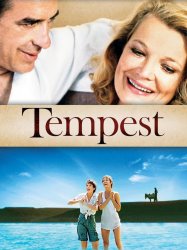
Tempest (1982)
, 2h20Directed by Paul Mazursky
Origin USA
Genres Drama, Comedy, Comedy-drama, Romance
Themes Seafaring films, Théâtre, Transport films, Films based on plays, Films based on works by William Shakespeare
Actors John Cassavetes, Gena Rowlands, Susan Sarandon, Vittorio Gassman, Raúl Juliá, Molly Ringwald
Roles Phillip's Father
Rating63%





The movie tells the story of Phillip Dimitrius (John Cassavetes), a middle-aged New York City architect who is going through a difficult mid-life crisis.
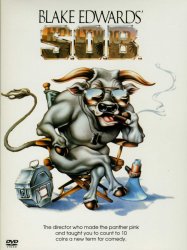
S.O.B. (1981)
, 2h2Directed by Blake Edwards
Origin USA
Genres Comedy, Musical
Themes Films about sexuality, Erotic films
Actors Julie Andrews, William Holden, Robert Vaughn, Richard Mulligan, Robert Preston, Shelley Winters
Roles Harry Sandler
Rating63%





The story is a satire of the film industry and Hollywood society. The main character, Felix Farmer, is a phenomenally successful film producer who has just made the first major flop of his career, to the dismay of his movie studio, resulting in the loss of his own sanity. Felix attempts suicide four times:

Nobody's Perfekt (1981)
, 1h36Directed by Peter Bonerz
Origin USA
Genres Comedy
Actors Kaplan, Alex Karras, Robert Klein, Susan Clark, Alex Rocco, Paul Stewart
Roles Dr. Segal
Rating44%





Three therapy patients — Dibley (Gabe Kaplan), whose memory often fails him; Swaboda (Alex Karras), who believes that his late mother is still alive and living with him; and Walter (Robert Klein), who has three personalities — want the city to buy them a new car after theirs is totaled by a pothole. Legal means prove to be insufficient, so the three of them hatch a plan to extort the money from the mayor (Arthur Rosenberg).

The Pilot (1980)
Directed by Cliff Robertson
Origin USA
Genres Drama, Action
Themes Films about alcoholism, Medical-themed films, Films about drugs, Transport films, Aviation films
Actors Cliff Robertson, Diane Baker, Frank Converse, Judy Wilson, Dana Andrews, Milo O'Shea
Roles 2nd Mechanic
Rating63%





Mike Hagan is a pilot in passenger service and a candidate for the honor of Best Pilot of the Year. There's only one problem -- Mike is an alcoholic.

Revenge of the Pink Panther (1978)
, 1h39Directed by Blake Edwards
Origin United-kingdom
Genres Thriller, Comedy, Comedy thriller, Action, Crime
Actors Peter Sellers, Herbert Lom, Andrew Sachs, Dyan Cannon, Robert Webber, Graham Stark
Roles Julio Scallini
Rating65%





Philippe Douvier (Robert Webber), a major businessman and secretly the head of the French Connection, is suspected by his New York Mafia drug trading partners of weak leadership and improperly conducting his criminal affairs. To demonstrate otherwise, Douvier's aide Guy Algo (Tony Beckley) suggests a show of force with the murder of Chief Inspector Jacques Clouseau (Peter Sellers). Unfortunately for Douvier, his first attempt at bombing him fails; and the subsequent attempt by Chinese martial artist 'Mr. Chong' (an uncredited appearance by the founder of American Kenpo, Ed Parker) is thwarted when Clouseau successfully fights him off, believing him to be his (Clouseau's) valet Cato (Burt Kwouk) who has orders to keep his employer alert with random attacks. That night, Douvier poses as an informant to lure Clouseau into a trap, but the Chief Inspector's car and clothes are stolen by transvestite criminal Claude Russo (Sue Lloyd), who is killed by Douvier's men. Subsequently Douvier and the French public believe Clouseau is dead and, as a result of this assumption, Clouseau's former boss, ex-Commissioner Charles Dreyfus (Herbert Lom), is restored to sanity and is released from the lunatic asylum to perform the investigation.

The Nativity (1978)
, 1h38Directed by Bernard L. Kowalski
Origin USA
Genres Drama, Historical
Themes Films set in Africa, Christmas films, Films about religion, Films about sexuality, Films based on the Bible, Portrayals of Jesus in film, Films about virginity
Actors Madeleine Stowe, John Shea, Jane Wyatt, Paul Stewart, Audrey Totter, Jiří Voskovec
Roles Zacharias
Rating61%





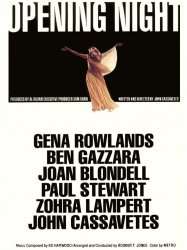
Opening Night (1977)
, 2h24Directed by John Cassavetes
Origin USA
Genres Drama, Comedy
Themes Films about television
Actors Gena Rowlands, Ben Gazzara, Joan Blondell, Paul Stewart, Peter Bogdanovich, Zohra Lampert
Roles David Samuels
Rating78%





In the film, Broadway actress Myrtle Gordon rehearses for her latest play, about a woman unable to admit that she is aging. When she witnesses the death of an adoring young fan, she begins to confront the personal and professional turmoils she faces in her own life.
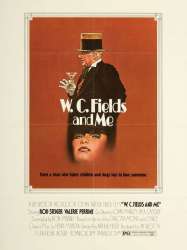
W.C. Fields and Me (1976)
, 1h51Directed by Arthur Hiller
Origin USA
Genres Drama, Biography
Actors Rod Steiger, Jack Cassidy, Valerie Perrine, Billy Barty, John Marley, Bernadette Peters
Roles Florenz Ziegfeld
Rating61%





The story begins in 1924 in New York City, where W.C. Fields is a Ziegfeld Follies headliner, and ends with his 1946 death in California at age 66. In between, it dramatizes his life and career with emphasis on the latter part of both, when the "Me" of the title, Carlotta Monti, played a prominent role, with a number of fictionalized events added for dramatic impact.

W.C. Fields and Me (1976)
, 1h51Directed by Arthur Hiller
Origin USA
Genres Drama
Actors Paul Stewart, Rod Steiger, Valerie Perrine, Jack Cassidy, Billy Barty, John Marley
Roles Florenz Ziegfeld
Rating61%





L'histoire commence en 1924 à New York où W. C. Fields participe aux Ziegfeld Follies, et se déroule jusqu'en 1946 avec sa mort en Californie.
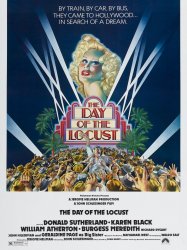
The Day of the Locust (1975)
, 2h24Directed by John Schlesinger
Origin USA
Genres Drama, Thriller
Themes Films about films
Actors William Atherton, Karen Black, Burgess Meredith, Donald Sutherland, Geraldine Page, Lelia Goldoni
Roles Helverston
Rating68%





A cynical and gothic look at Hollywood during the late 1930s, The Day of the Locust tells the tales of residents of the dilapidated San Bernardino Arms: Faye Greener, a trashy aspiring actress with limited talent, and her father Harry, a washed-up vaudevillian reduced to working as a door-to-door salesman; sexually repressed accountant Homer Simpson, who desperately loves Faye, and East Coast WASP Tod Hackett, an aspiring artist employed by the production department of a major studio, who also fancies Faye.
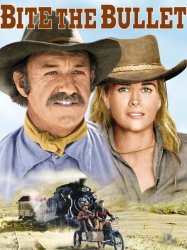
Bite the Bullet (1975)
, 2h12Directed by Richard Brooks
Origin USA
Genres Action, Adventure, Western
Themes Films about animals, Sports films, Transport films, Films about automobiles, Films about horses, Road movies, Chase films, Mise en scène d'un mammifère, Horse sports in film
Actors Gene Hackman, James Coburn, Candice Bergen, Ben Johnson, Ian Bannen, Jan-Michael Vincent
Rating65%





Based on actual events of the early twentieth century, the story concerns a grueling 700-mile cross-country horse race in 1906 and the way it affects the lives of its various participants.

Murph the Surf (1975)
, 1h41Directed by Marvin J. Chomsky
Origin USA
Genres Drama, Comedy, Crime
Actors Robert Conrad, Don Stroud, Donna Mills, Luther Adler, Paul Stewart, Morgan Paull
Roles Avery
Rating60%





Deux play-boys de Miami devenus célèbres en réalisant l'un des plus grands vols de bijoux du 20ème siècle. 22 pierres précieuses au compteur, dont les fameuses étoile de l'Inde et le diamant de l'aigle. Des pierres à l'époque si connues qu'il était alors impossible de les revendre...

F for Fake (1973)
, 1h25Directed by Orson Welles, François Reichenbach, Gary Graver
Origin France
Genres Documentary
Themes Peinture, Documentary films about the visual arts
Actors Joseph Cotten, François Reichenbach, Gary Graver, Orson Welles, Paul Stewart, Peter Bogdanovich
Roles Self
Rating76%





Several narratives are woven together throughout the film, including those of de Hory, Irving, Welles, Howard Hughes and Kodar.
 Connection
Connection

